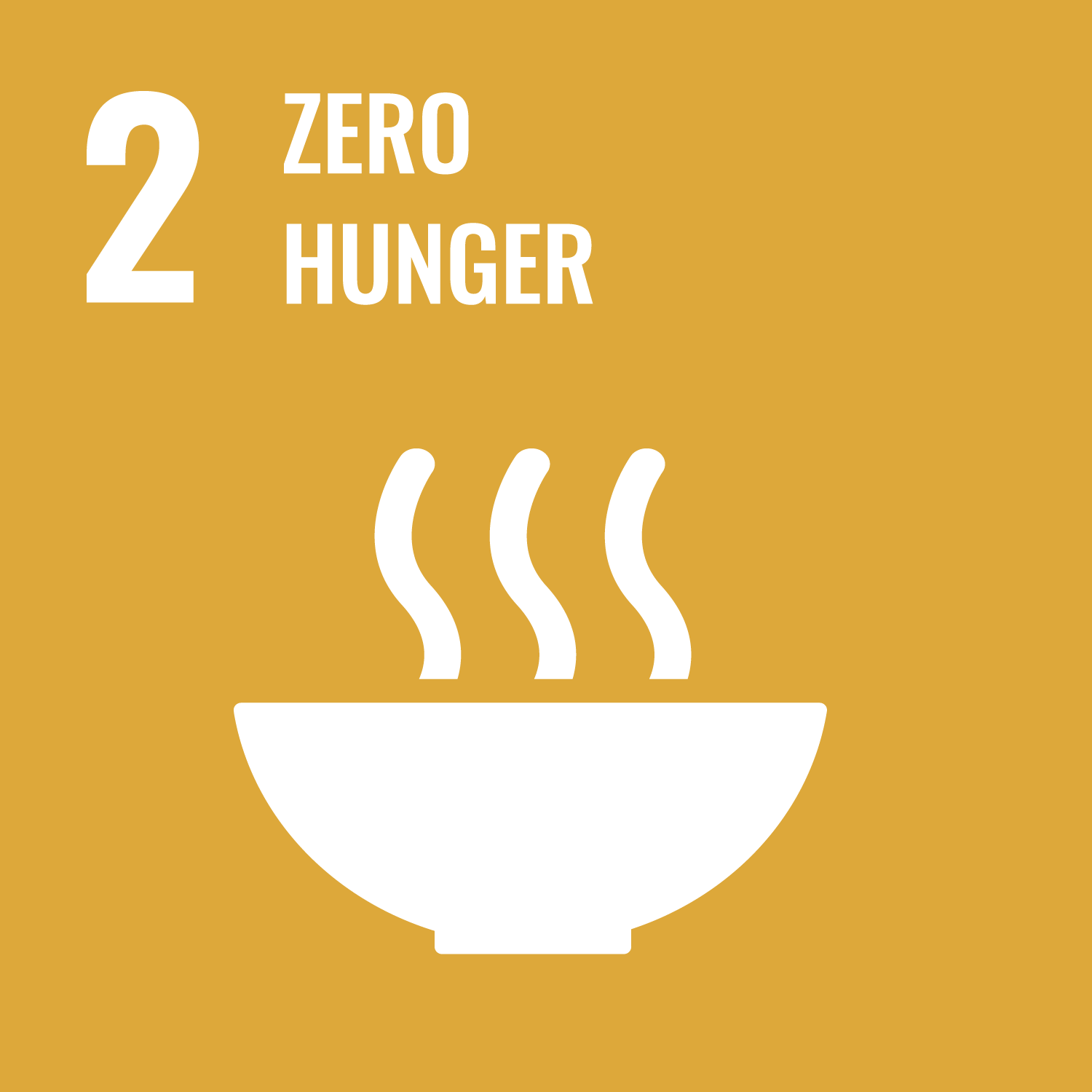目標2:消除飢餓

FOOD WASTE MANAGEMENT
In 2020, our faculty and staff totaled 15,606 persons, and total food waste was 32,903 kg, an average of 2.11 kg/person/year. Most was vegetable leaves and peeling produced during food preparation. This waste food was treated by recycling companies for use as pig feed, thus achieving the goal of zero food waste.
In order to avoid wasting food and support students in financial difficulties, the convenience stores on campus designated fresh food to be sold at a 30% off discount for the final eight hours prior to the expiration time and date. This helps reduce wastage of fresh food and creates value by helping those in need.
SUSTAINABLE, HEALTHY, AND AFFORDABLE FOOD CHOICES
In addition to certain specialty restaurants within the school that only provide vegan meals, other non-vegan restaurants in the school also provide a variety of vegetarian dishes and meals for teachers and students to choose from. Genetically modified products are prohibited for use as ingredients and only ingredients that have obtained the relevant government inspection marks are allowed. The use of processed products has been reduced to facilitate sustainable ecological development. In addition, the school’s USR project executive team organizes regular group buying activities to buy natural, mountain-grown vegetables from local indigenous peoples, thus allowing teachers and colleagues in the school to purchase healthy and sustainable fruits and vegetables.
For food ingredients in the school’s dietary regimen, priority should be given to local high-quality agricultural products certified by the central agricultural authority and those that have obtained government inspection certificates; in addition, the use of processed products should be reduced, and the use of genetically modified products should be prohibited to facilitate sustainable ecological development.
School caterers and food technicians provide healthy, safe, and nutritionally balanced meals with no genetically modified products cooked at reduced temperatures to preserve the original flavor of the ingredients, thus allowing teachers and students to choose from a selection of healthy, zero-burden foods.
Moreover, to provide our students with more affordable food, the school includes a section in the catering investment contract requiring manufacturers to give priority to hiring school students in work-study programs. Grocery stores provide fresh food discounts, and catering merchants provide special meals.
FOOD SECURITY AND SUSTAINABLE AGRICULTURE TRAINING
Out of 3700 graduates in 2020, none majored in sustainable agriculture and aquaculture.
As part of its USR program, Taipei Tech established a natural agriculture course in 2020 to train local farmers in knowledge and techniques related to natural farming, which is beneficial to environmental sustainability. A total of ten local farmers participated in the training course. Taipei Tech helped local farmers improve the quality of their work by opening its chemical laboratory to provide regular testing of the nutritional value of vegetables and soil composition.
To promote Taipei Tech’s USR program “Indigenous Peoples Humanitarian Architecture and Agro-ecological Innovations Development Program”, the school has organized nine agricultural food education seminars and promotional exhibitions in order to increase access to healthy and nutritious food and promote environmentally friendly agricultural products. A total of 103 teachers and students participated in these activities, and 253 local community members participated.





 10608 台北市忠孝東路三段1號
10608 台北市忠孝東路三段1號 Tel:886-2-2771-2171#1021
Tel:886-2-2771-2171#1021